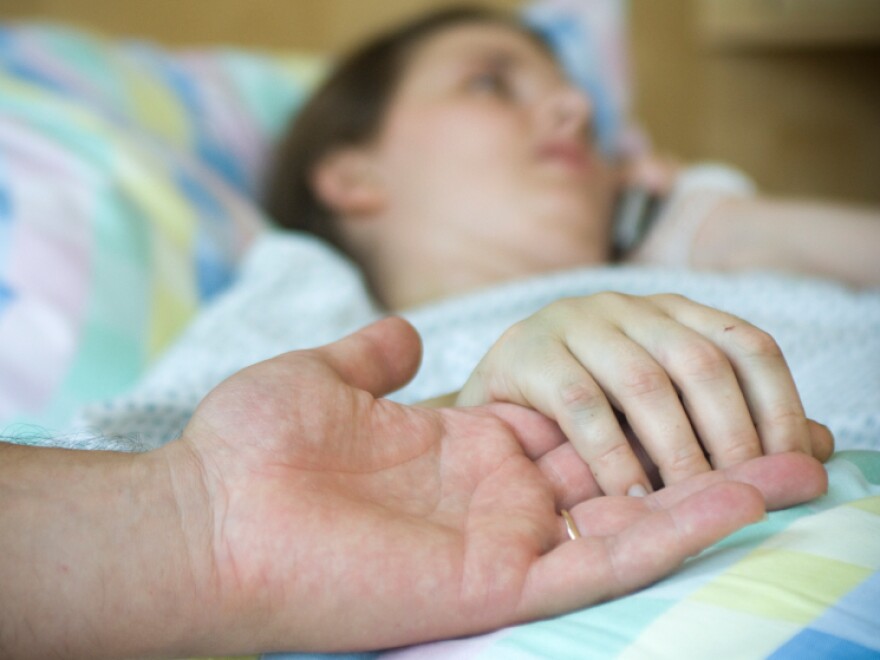When you go to the hospital these days, chances are good that it will be affiliated with a religious organization. And while that may might just mean the chaplain will be of a specific denomination or some foods will be off limits, there may also be rules about the kind of care allowed.
A survey of more than 1,000 OB-GYNs who work in religious hospitals finds that more than one-third report they've had a conflict regarding religion-based policy and patient care. At Catholic hospitals, the figure was 52 percent.
The study, which appears in the American Journal of Obstetrics and Gynecology, was funded by the National Institutes of Health, the and the .
Restrictions on abortion at Catholic hospitals are the rule. But that's not the only issue, says Debra Stulberg, an assistant professor of family medicine at the University of Chicago Medical School and lead author of the study.
Stulberg said while the survey did not allow researchers to pinpoint the exact nature of the conflicts (more research is currently under way involving follow-up interviews with some of the survey respondents), her own discussions with physicians in religiously affiliated hospitals have found that the most frequent issues arise around birth control and sterilization, particularly for women who want to be sterilized just after giving birth.
"Those are things that most OB-GYNs support giving to women and that they want to be able to offer to women," Stulberg says. "And they are completely prohibited at Catholic hospitals."
For women having a C-section, she says, that prohibition can mean having to go to a separate hospital and have a second surgery, complete with the further risk of another round of anesthesia. "It's not medically good for a woman to have two surgeries when she could have one," she says.
A bright spot in the survey, however, is that relatively few physicians said they experienced conflict over how to deal with patients with an ectopic pregnancy, a situation where an embryo begins to develop outside the woman's uterus, usually in the fallopian tube.
Only 2.9 percent of the OB-GYNs who responded to the survey said the policies of their institution limited their treatment options for dealing with an ectopic pregnancy. For those who practiced in Catholic hospitals, the number was higher but still low — 5.5 percent.
Still, Stulberg says, hospitals should make it clear to doctors and patients exactly what their policy is on treating ectopic pregnancy. In particular, do they permit or ban the use of methotrexate, a drug that can spare surgery in some cases, but which can also run afoul of Catholic hospitals' abortion ban?
Meanwhile, the Catholic Health Association, which represents Catholic hospitals, said in a statement that it has been educating doctors on its policies for years. Now, the organization "is developing additional resources to its well-received educational resources on the Ethical and Religious Directives for Catholic Health Care Services, including segments especially geared to physicians."
Copyright 2020 NPR. To see more, visit https://www.npr.org. 9(MDA3MzEzNjc2MDEzMDI2Mzc4OTc4NTFmNg001))

